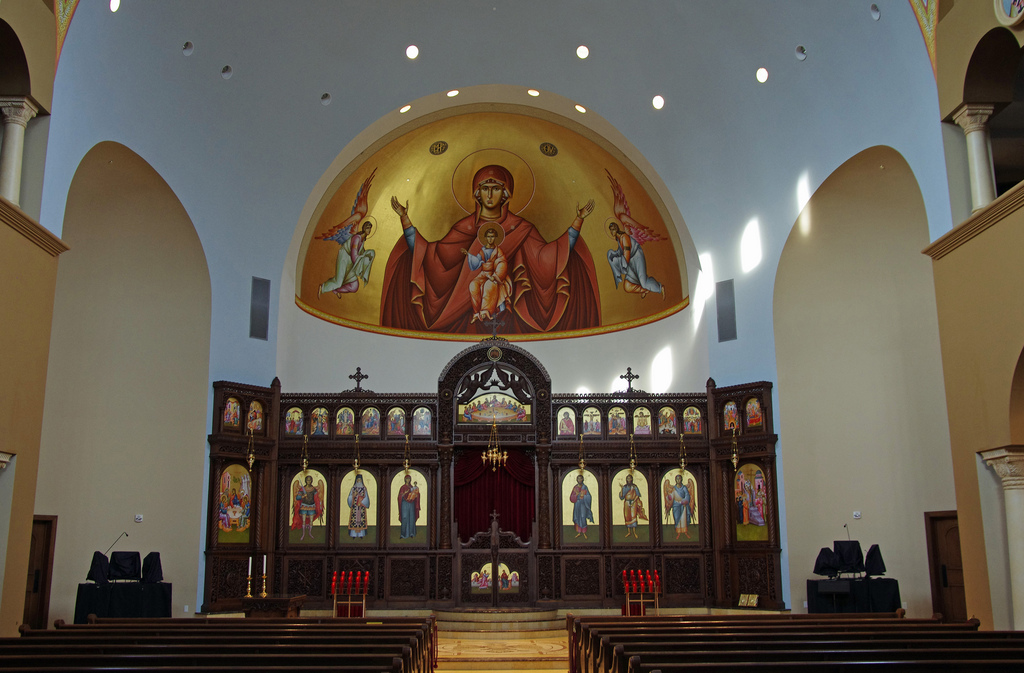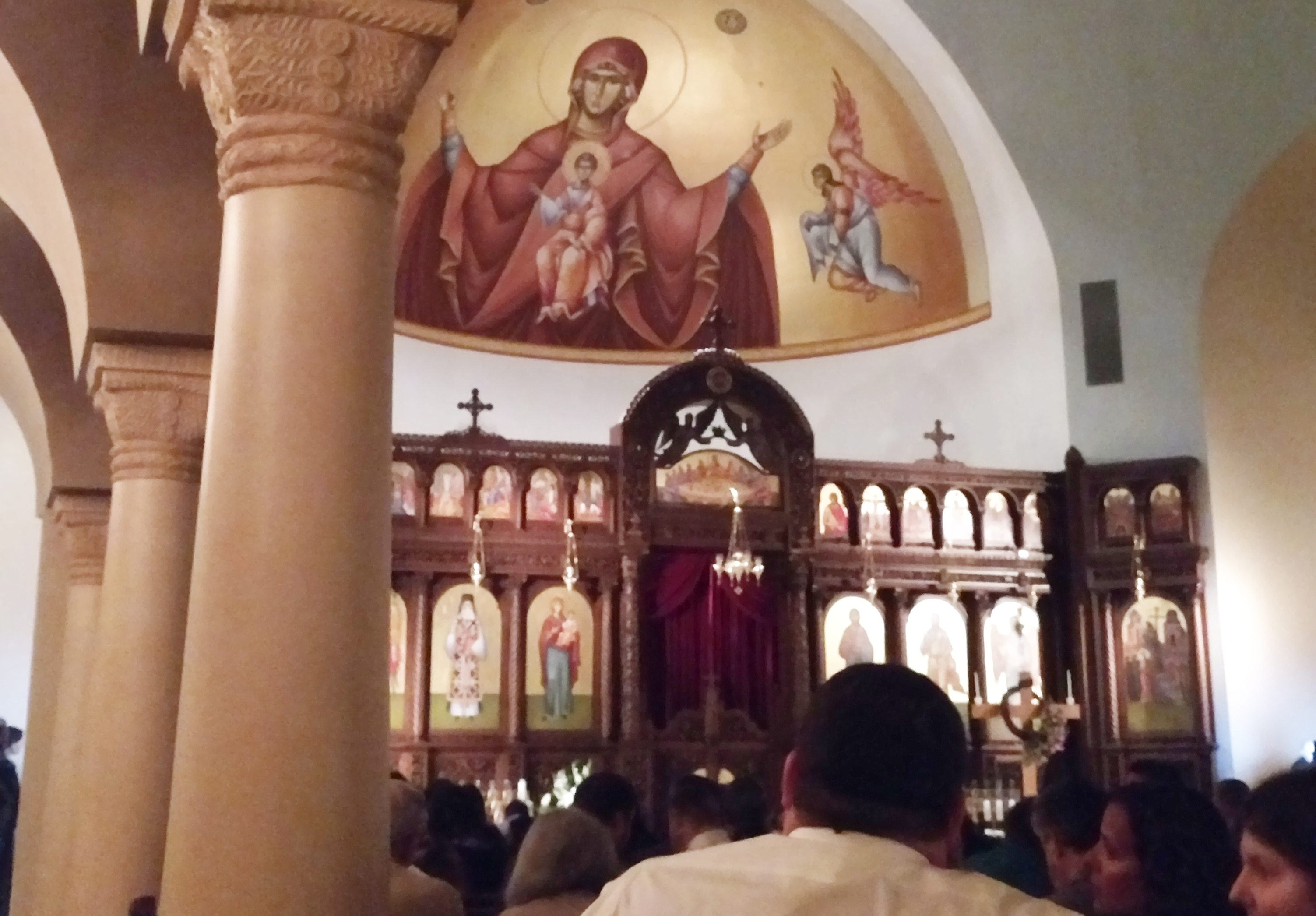One of the biggest complaints against Pulpit & Pen we get consistently is that we somehow don’t “have all our facts,” or are “misrepresenting” someone or something. I received countless emails claiming that I “misrepresented” Greek Orthodoxy in my recent posts regarding Hank Hanegraaff and that I should do more research. Well, what better way to research than to go straight to the source in person? Saturday, April 15, known as Holy Saturday in the Orthodox tradition, I along with a couple of friends went to visit St. Nektarios Greek Orthodox Church in Charlotte, NC–the church that Hanegraaff was recently chrismated in. The service began at 11:30 pm, and was still going strong showing no signs of slowing down when we decided to leave at around 2:00 am. While we hoped to have the opportunity to confront Hanegraaff in person, being that we all had to get up early the next morning to worship the living God on Easter morning, we decided to call it a night early. However, there are quite a few things that we can take away from this experience in this church.
1.) I have sat through many Catholic masses. I was married in a Catholic church, and I can definitely say I’ve “been there done that.” But I’ve never sat through anything so long and tedious as the Greek Orthodox mass. Perhaps being a special Saturday night “resurrection service,” this wasn’t the norm, but it was excruciatingly long. 2 1/2 hours in and no sign of slowing down.
2.) The cliche, “bells and smells” is actually a true reality. The burning of incense and ringing of bells was a noxious combination. It reminded me of being in a college dorm smoking weed and blowing the smoke through toilet paper rolls stuffed with dryer sheets.
3.) The liturgy was vain and repetitious. Literally, the same ritualistic prayers and chanting were sung over and over. Every prayer included an invocation of Mary and the Saints.
4.) While there was actually quite a bit of Scripture reading, there was absolutely no teaching. In fact, the vast majority of Scripture reading was sung in the eerie Byzantine chant. You’d really have to pay attention and try to listen really hard to even understand what they were reading or reciting.
5.) The facility was adorned, literally, wall to wall, floor to ceiling in graven images of the saints. The images were painted in such a way that the expressions on their faces were devoid of any emotion. They looked like lifeless figures just floating around in space.
6.) The enthusiasm of the clergy and participants in the service was extremely low. Those participating in the rituals walked around with lifeless expressions on their faces. The entire ritual was empty and dead.
7.) There is obviously little to no pursuit of holiness in this church. Several times during the service, the ushers and deacons could be seen stepping out to take smoke breaks. Many of the women and even some of the younger girls were dressed less than modestly.
8.) Repeatedly, the chanting and liturgy included a summons to God to perform certain acts. It was clear that they believe that God works through and is dependent upon these rituals to activate the work of the Holy Spirit.
9.) The Greek and Eastern Orthodox church is clearly a lifeless church. There was absolutely no gospel in this service. A lost person could not walk into this church and walk out a changed man. It was literally a Pagan practice. Like a seance. Pure witchcraft was going on in this place. In this religion, salvation doesn’t come through Christ’s imputed righteousness and substitutionary atonement on the cross, it comes through these dead rituals that they believe ontologically changes them into divine beings. It was truly one of the most wicked experiences I’ve ever seen.
This is what Hank Hanegraaff has apostatized to. He knows the Bible, he has taught it his entire life. He now rejects it. The bible clearly teaches against the wickedness and error found within the manmade traditions and doctrines of demons in the Orthodox church. It would have been easy for one to let their guard down and become entranced by the production. While in the West it is likely less common for practitioners of the religion to take it that seriously, it’s easy to see how those who do take it seriously could achieve an altered state of mind which would in effect by a spiritual experience for those truly seeking it. After my experience at this church, not only do I fully stand by what I have written, but it is even more clear now that this religion is not of God and should be avoided.
[Contributed by Pulpit & Pen]
![]() Podcast: Polemics Report – The ‘Bazooka’ of Bluntness vs Nuance and Unclarity, JD Hall
Podcast: Polemics Report – The ‘Bazooka’ of Bluntness vs Nuance and Unclarity, JD Hall












